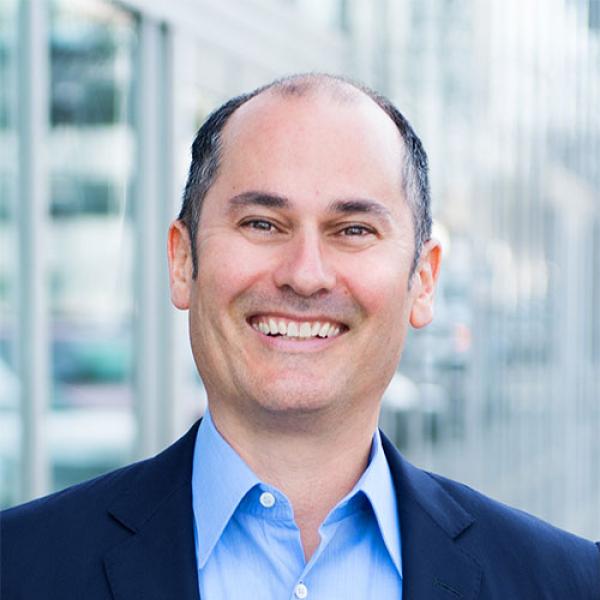Building a Career and Practice In Functional Medicine Part 2
by Dr. Dan Kalish

Here is Part 1, Building a Career and Practice In Functional Medicine
As I travel around the world teaching from Japan to New Zealand to New York city I am constantly asked by people with a wide range of backgrounds about building a career and practice in functional medicine.
The question of how to build a successful functional medicine practice is something I’ve looked at for over 25 years both for myself and my own practice and for the last 15 years looking at helping practitioners building their own careers in functional medicine.
First let’s look at the background of functional medicine from decades past and then I’ll discuss what I see as happening currently. Early functional medicine pioneers were from many diverse backgrounds, PhD’s, chiropractors, naturopaths and a few MD’s did the work back in the 70’s and 80’s. I personally was trained by two ND’s although I was licensed as a chiropractor (go figure!). When I was up for licensing the state of California where I lived at the time didn’t license naturopaths so I chose to become a chiropractor in order to practice functional medicine.
All sorts of folks can and do practice functional medicine in the present day as well. Currently in the Kalish Institute courses we train mostly MD’s. However, acupuncturists make excellent functional medicine providers because they are already trained in systems-based medicine, which is the basis of traditional Chinese medical thought. Naturopaths also often adopt functional medicine because naturopathic medical school includes so much clinical nutrition and herbal medicine the concepts come easily to them. If you go back 30 plus years you would find many of the leading functional medicine practitioners of that era were chiropractors, which on the surface seems a little odd but in those days chiropractors often filled the role of “natural health” provider and naturopaths were not licensed in very many states.
Schedule a 15-Minute Phone ConsultationThe field has grown dramatically and continues to do so and becoming a functional medicine specialist is of great interest to many people. People ask me about becoming a certified functional medicine practitioner through the Institute for Functional Medicine and wonder about the feasibility of careers in functional medicine. Becoming a functional medicine specialist can be extremely rewarding and there are many options for how one can best study functional medicine and turn it into a career.
There are various niches or areas within functional medicine that can be covered by different types of practitioners. There is the general subject area of lab analytics and interpretation of advanced tests. These need to be done by someone with a health care license that can order the labs and is properly trained in identifying medical issues. There is the broad area of clinical nutrition which can be practiced by a variety of people, you don’t necessarily need an advanced graduate level degree to do this work and then there is the general area of coaching or instructing people on lifestyle changes like what to eat, how to exercise or meditate. Here is where it gets confusing because there is a lot of cross over and intermixing of how the various types of practices are delivered and what type of license is required to do what.
For example, you often have an MD that interprets labs, practices clinical nutrition and acts as a coach for lifestyle changes. Or, you could have an MD that works with a clinical nutritionist and a coach in a practice where the various tasks are divided up between different types of practitioners. In any situation in order to be safe one should have a team approach. For example, for myself as a chiropractor I always work with patients that also have an MD. Whether that MD is holistically oriented or not doesn’t matter, we just need to be sure that the medical side of things is being covered. What is dangerous is when patients get care from a functional medicine provider and basic medical issues are ignored. That can lead to a misdiagnosis and cause serious harm.
If you are thinking about a career in functional medicine the best option is to get as much education as possible. To give you an idea of what I did. I spent 3 years training in energy healing, then went to chiropractic college for four years, I completed two separate 5 year internships with two naturopaths, one in clinical nutrition and one in lab evaluation and another three years during that time was spent on various clinical nutrition certification programs. I had a good dozen years of post-graduate education and that made me the successful, competent and effective practitioner that I am today. It was a big investment of time and money.
You can start your career with a base education and there are various options: medical school, osteopathic college, acupuncture, naturopathic or chiropractic college are all good starts. If you want to work primarily as a health coach or clinical nutritionist then there are now several coaching and nutrition programs that you can attend without having to get the graduate level licensing. There really are no shortcuts to learning the work as everyone in the field of functional medicine that I know well has spent at least a decade invested in education.
Part of the confusion surrounding why so many different types of practitioners are doing functional medicine is based on people not being totally clear as to what functional medicine really is. To me it’s two interrelated but somewhat independent things. Lifestyle change based on coaching on diet, exercise, sleep and meditation AND the ability to interpret specific functional medicine lab work and apply clinical nutrition programs to correct all the body systems. In some situations one single practitioner may do both things, in other situations they can be done separately by two or more different providers.
Simply taking a short course in functional medicine certainly won’t prepare someone for actually practicing this work. I find one or two years of intensive training is enough to get an already experienced practitioner started and most people start to become effective providers after a few years of applying this work. Mentorship is key. There are no books or university based programs that fully train people in this work. There are programs like the Institute for Functional Medicine (IFM) that have excellent training for licensed providers in the science and art of functional medicine. Once folks go through that curriculum with an additional one or two years of one-on-one training, they can become great practitioners.
If you have questions about what role in functional medicine we play at the Kalish Institute please let us know.
Schedule a 15-Minute Phone Consultation
